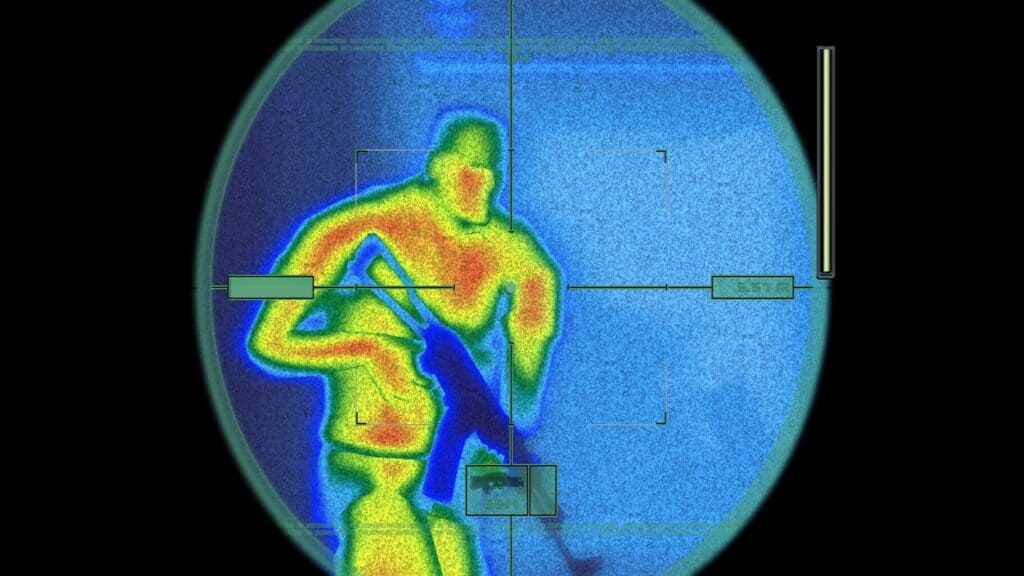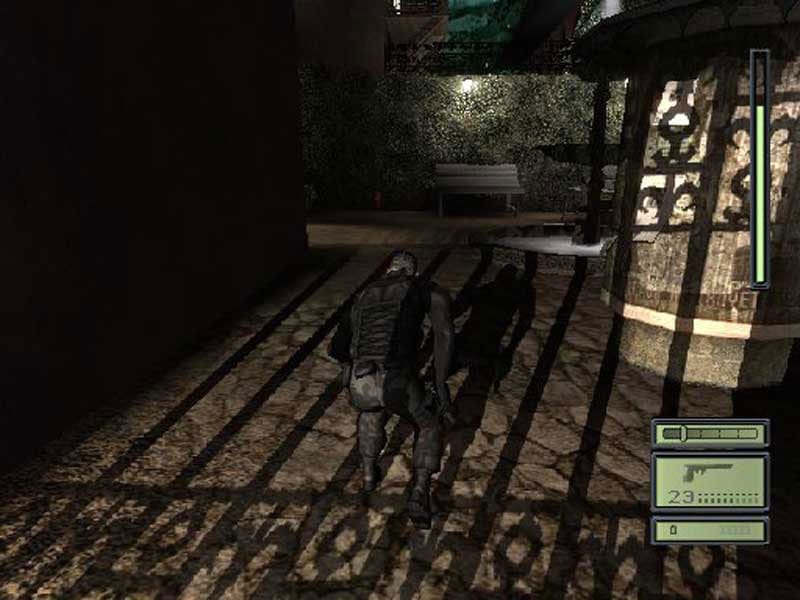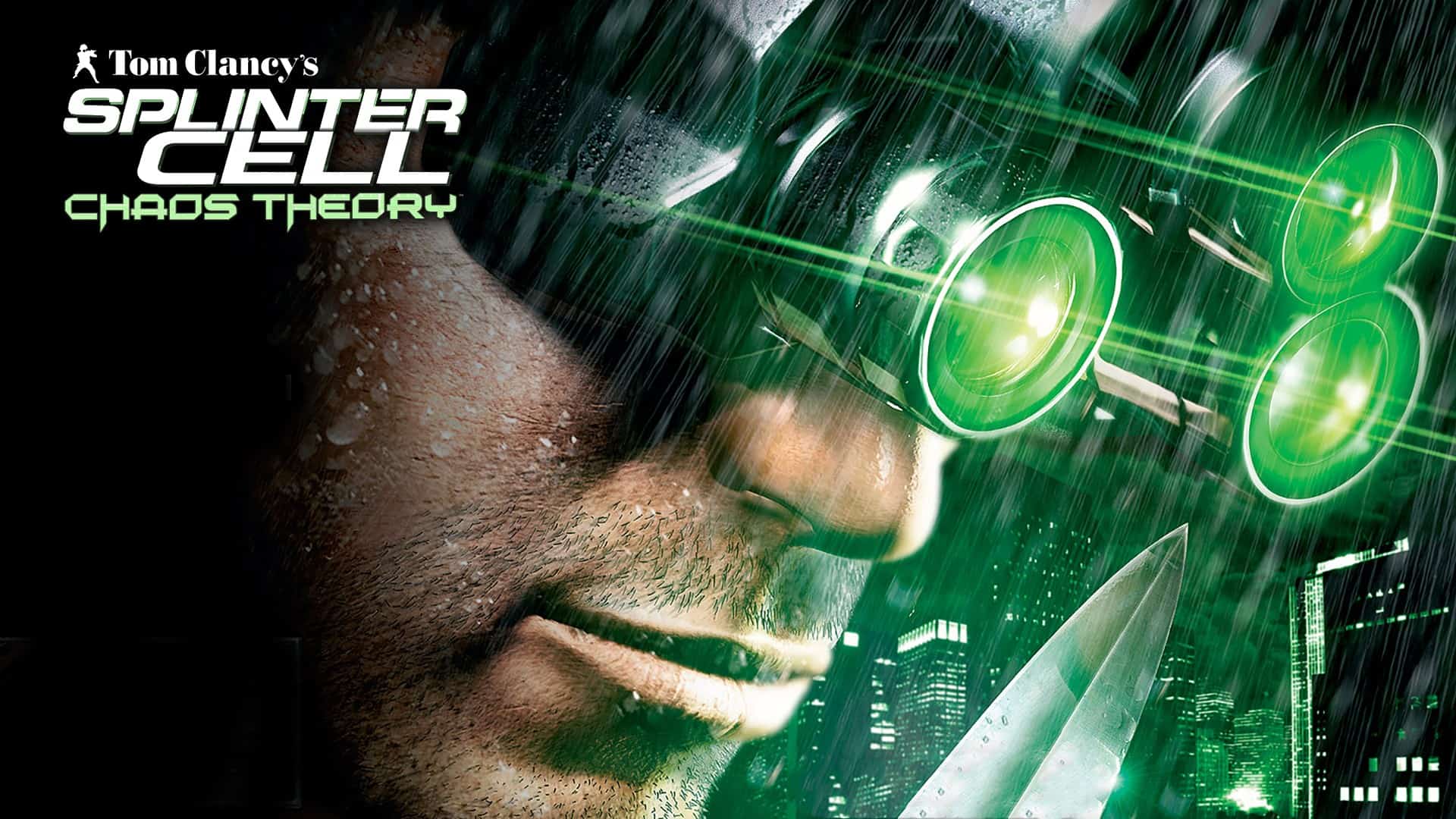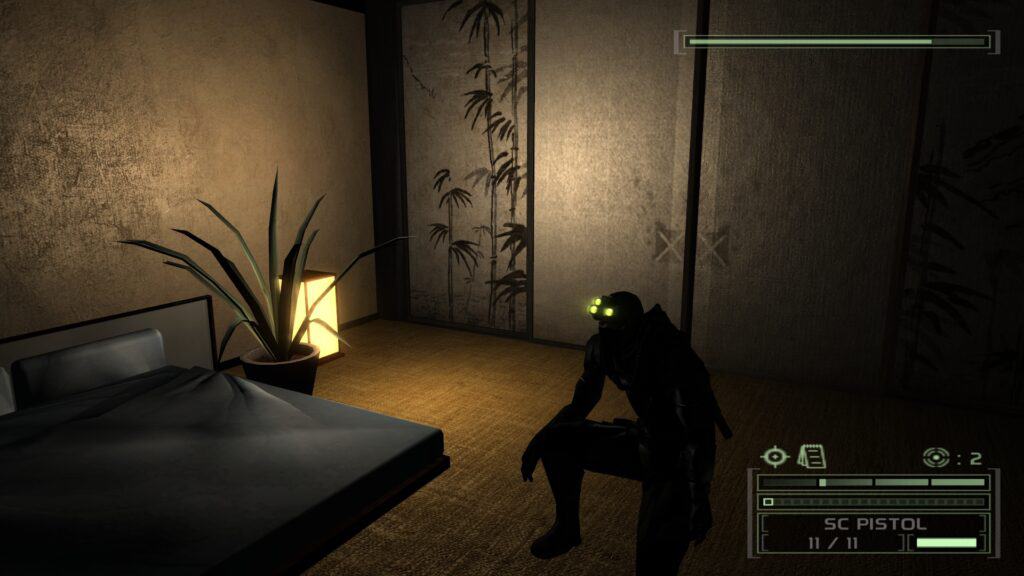Tom Clancy’s Splinter Cell: Chaos Theory, released by Ubisoft in 2005, is easily the most refined handheld version of this series. Created for PlayStation 2, Xbox, GameCube, and Microsoft Windows it has excellent graphics and stealth gameplay. However, the real question is whether or not this game is worth the money?
A Smarter Kind of Shooter

Sam Fisher is the lone, secret operative the gamer will take control of. Armed with weapons, gadgets, and the training to use them effectively, he’s a one-man army. Missions rely on shooting and stealth, as well as some puzzle solving and interrogating enemies for information. The blend of all of these elements makes for a fascinating style of gameplay in Tom Clancy’s Splinter Cell: Chaos Theory where the player won’t know what’s coming next. It’s not the same kind of fast-paced, frenetic shooting as Max Payne. It’s more subtle and realistic. The stealth is done well, but slowdown and excessive darkness conspire to make the shooting segments more difficult than they need to be.
Great Graphics at the Cost of Slowdown
Tom Clancy’s Splinter Cell: Chaos Theory certainly looks amazing; instead of the typical side-scrolling, this adventure is in full 3D. Unfortunately, it suffers from a lot of frame rate issues. The engine is being overtaxed, which shows at times with some severe slowdown, but it’s technically impressive, to say the least.
During some stealth missions, the player will be forced to use night vision goggles to see in the dark. The goggles severely slow the frame rate down, to the point where they are not very usable. The darkness is just too much for a handheld system. There’s no good way to lighten it up.
While there are no voice overs to be found here, the story is captivating, if not a little wordy. There is some digitized music from the console version which swings from a moody stealth soundtrack to adrenaline-pumping techno and lets you know when you’ve been discovered.
Controls are a Mixed Bag

Many fans were waiting to see how the touch controls would be assimilated into Tom Clancy’s Splinter Cell: Chaos Theory. Unfortunately, the results can be rather hit-or-miss. The system is way too complex. The idea of using the stylus for aiming is an interesting one, as it somewhat approximates the accuracy of a PC mouse. Unfortunately, the player will often have to switch weapons and gadgets quickly, and the control system is not user-friendly in that regard. This system works well in a stealth environment, but if the gamer triggers an alarm, they could find themselves at a serious disadvantage during a firefight.
The gameplay is pretty linear. Unlike the console version, there is only one way to complete each mission. Usually, finding this one way comes down to trial and error. Make a mistake and the player will start back at the last checkpoint. Expect the same scripted events in the same order.
Departing Notes
There are multiplayer modes, but the only one that’s worth the price of admission is the co-op mode. The player and another special op agent will work together through the missions, and new gameplay elements will be available that force you to work as a team. These include things such as boosting your partner over a wall that they wouldn’t be able to climb otherwise. On the other end of the spectrum, the four-player Deathmatch mode suffers from some bad slowdown, making it virtually unplayable.
The console versions of the Splinter Cell series are virtually perfect, which has set expectations for Tom Clancy’s Splinter Cell: Chaos Theory sky-high. For those who are able to temper those expectations for a handheld experience, this game has a lot to offer. For those who have already played these games on console, you won’t find much added value here beyond portability.
The image featured at the top of this post is ©Ubisoft.

